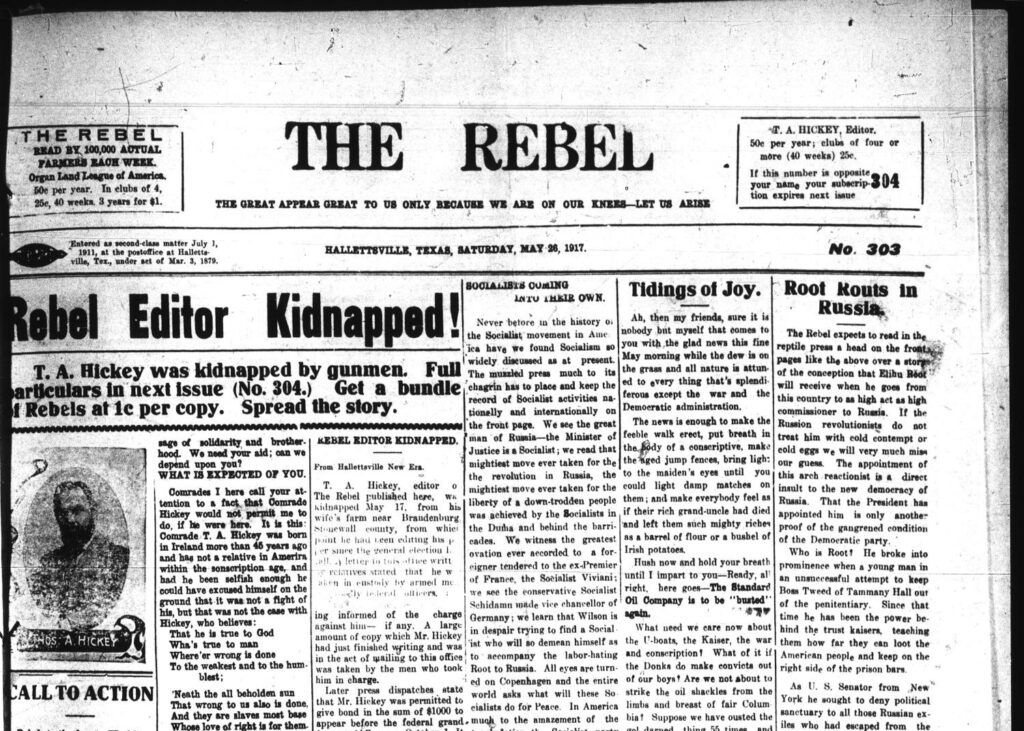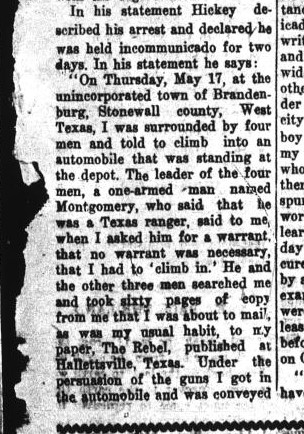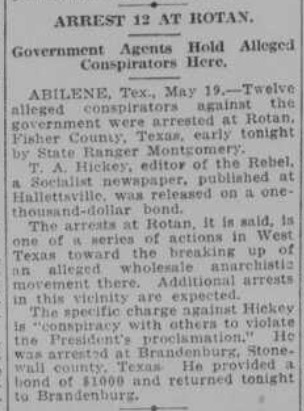
On this day in 1917, four men arrested Thomas Hickey, editor of the socialist, anti-war newspaper The Rebel, claiming without evidence that he was part of an armed anti-conscription conspiracy. The group’s leader, Montgomery, identified himself as a Ranger.
Other newspapers confirm that this was John Montgomery, a Special Ranger active from June 1916 to January 1919. Although Special Rangers could be less experienced than other, longer-serving Rangers, the state Ranger force deputized them and sanctioned their actions. Montgomery acted as a Ranger when he arrested Hickey, even though they had no warrant for his arrest. Hickey was held incommunicado in Federal custody for two days, unable to contact anyone. He was eventually released on a bond after a “perfunctory” hearing and was not prosecuted.



Hickey’s arrest was part of a national attempt to stifle anti-war speech as the US entered the First World War. Shortly after The Rebel’s May 26 issue detailing the arrest, the US Post Office revoked the paper’s second-class mailing privileges. This made the paper exorbitantly expensive to mail and effectively ended its circulation.
Hickey’s kidnapping wasn’t the only time Rangers threatened the press. In his book Cult of Glory: The Bold and Brutal History of the Texas Rangers, Doug Swanson describes how Capt. Charles Stevens once menaced the Brownsville Sentinel’s editor over an essay about a Ranger “campaign of extermination” against ethnic Mexicans. Stevens claimed the editorial was anti-US German propaganda, but it was really a reflection on La Matanza, the state-sanctioned violence against ethnic Mexicans in Texas. After his visit, Stevens told superiors that the editor was “very sorry” about the editorial (Swanson, 255).
In a 1984 oral history, Aquilino and Guadalupe Idar also recalled a time in 1914 when Rangers attempted to shut down El Progreso, a Laredo paper that advocated for Mexican Americans’ political rights. As the Idars tell it, the Rangers were angry about a recent editorial. But journalist and activist Jovita Idár blocked them from entering the building. The Rangers returned the next day when Idár was elsewhere, broke into the office, destroyed the presses, and beat the editorial’s author.
There’s some debate today about when exactly this raid happened, and, importantly, if the Texas Rangers or other law enforcement conducted it. But there’s contemporary evidence that Rangers did arrest El Progreso’s editors in 1916.
On May 5, 1916, the San Antonio paper La Prensa reported that a Ranger named Sanders arrested El Progreso’s editorial board for publishing supposedly anti-American materials. This man was presumably JJ Sanders, a Ranger captain active at the time. Contemporary accounts from La Prensa and the Laredo Weekly Times show that the arrest, like Hickey’s, was censorship justified by the ongoing revolution in Mexico and the war in Europe. You can learn more about Idár and the ethnic violence in Texas during World War I in episode 3 of Texas Monthly’s “White Hats” by Jack Herrera.



Actions like those the Rangers took against The Rebel and El Progresso show that the Texas Rangers participated in state censorship of the press and targeted dissident papers and writers who supposedly supported the revolutionary forces in Mexico. Explore this blog or follow @Refusing2Forget on Twitter to learn more.

